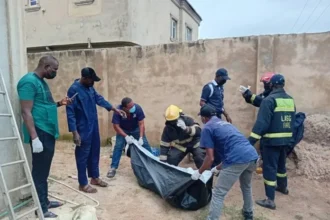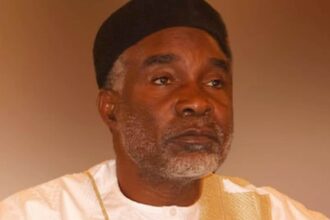...To get all news updates, Join our WhatsApp Group (Click Here)
Also Join our WhatsApp Channel (Click Here)
PEN Nigeria joins PEN International in calling for the repeal of criminal defamation and insult laws across the African continent. We also call for the unconditional release of the Nigerian journalist, Jones Abiri.
As we celebrate World Press Freedom Day today, May 3, 2018, PEN International, Nigerian Centre (aka PEN Nigeria) calls for the repeal of criminal defamation and insult laws. Over 150 writers and NGOs from across the African continent have joined PEN’s calls by signing a PEN petition, led by African PEN Centres, calling on African states to abolish criminal defamation and ‘insult’ laws as a matter of urgency and to release writers and journalists who have been jailed under such charges.
These laws must be repealed as they constitute a clear threat to freedom of expression, one of the fundamental human rights which, according to the Universal Declaration of Human Rights, is the right of every individual to hold opinions without interference, and to seek, receive and impart information and ideas through any media and regardless of frontiers.
Many governments in Africa retain criminal defamation laws that make it a crime to say, write or publish anything that they consider defamatory or insulting. The result is a restriction of freedom of expression, open debate, political criticism and media reporting.
The writers, who include Ngugi wa Thiong’o, Enoh Meyomesse, Abdelaziz Baraka Sakin, Ahdaf Soueif, and Ismaila Samba Traoré, have added their names to the petition highlighting their concerns about the use of defamation laws to silence critics:
‘As African writers, promoters of literature and advocates for freedom of expression, we are deeply concerned by the continued existence in the majority of African states of colonial-era laws, which continue to treat defamation as a criminal offence. These laws are invariably used to silence writers, journalists and others, and often carry heavy penalties, including imprisonment and political disenfranchisement.’
The petition was drawn up in response to research carried out by PEN International on the continued retention of such laws in Uganda, Zambia, South Africa and Sierra Leone and the impact of the repeal of criminal defamation laws in Ghana in 2001. The research culminated in a report – “Stifling Dissent, Impeding Accountability: Criminal Defamation Laws in Africa” – which found that the threat of criminal sanctions deters media investigations into (and reporting of) issues governments consider sensitive, such as high-level corruption, official malpractice or law-breaking, leading to censorship, facilitating official secrecy and undermining accountability.
The petition was presented to the Pan African Parliament in March, 2018, as well as the Chairperson of the African Commission on Human and Peoples’ Rights on 27 April, 2018.
For more information please contact, PEN Nigeria.
Folu Agoi
President, PEN International, Nigerian Centre (aka PEN Nigeria)
You can get every of our news as soon as they drop on WhatsApp ...To get all news updates, Join our WhatsApp Group (Click Here)
Also Join our WhatsApp Channel (Click Here)










